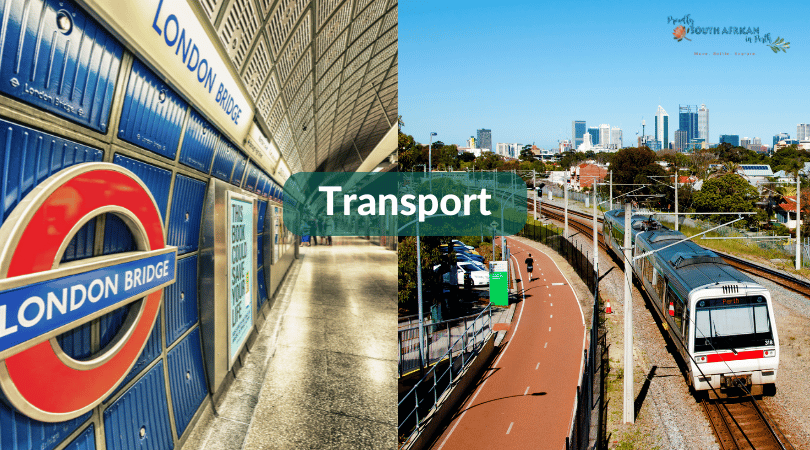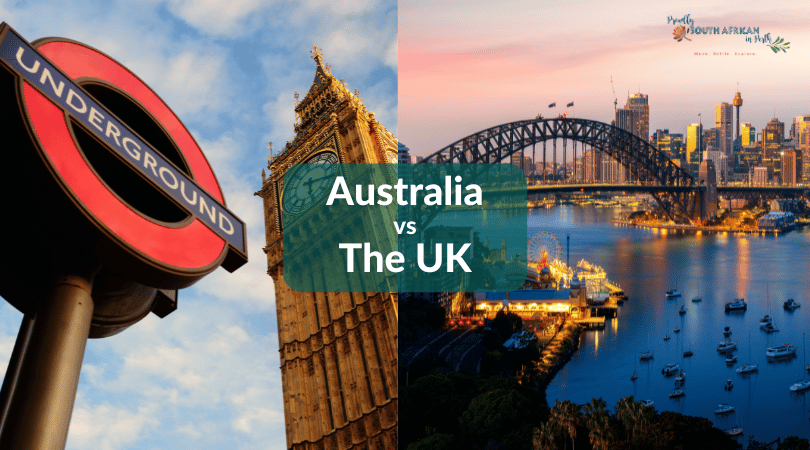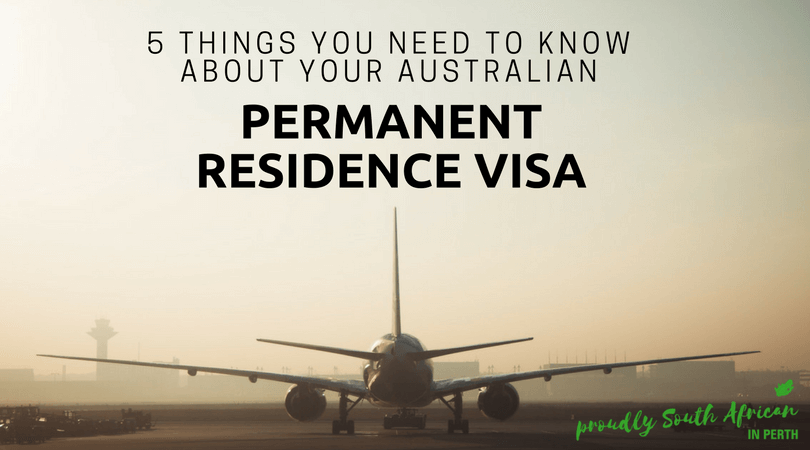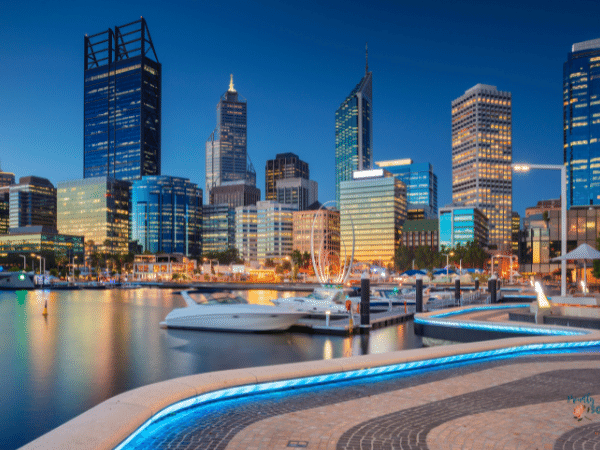Do you want to know more about life in Australia vs the UK?
If you’re considering a move from the UK to Australia, like I did back in 2013, you’re likely weighing up the pros and cons of life in each country. Or you might be weighing up a move from South Africa to the UK or Australia – both popular destinations for South Africans wanting to move overseas.
Both Australia and the UK offer a high quality of life but in very different ways. In this post, I’ll compare and contrast the key factors of each country to help you understand what your life might look like in Australia if you’re thinking of moving from the UK.
I have a bit of a unique perspective on this, as not only have I lived in the UK and Australia, but South Africa as well. With South Africa being my country of birth, I’m able to see the pros and cons for the UK and Australia, without being biased towards either one due to my inner patriotism (Bokke forever!).
Life in Australia vs the UK: A Comprehensive Guide for Expats
1. Climate
Australia:
Australia is, of course, famous for its generally warm, sunny climate. Most cities enjoy hot summers and mild winters. In coastal cities like Sydney, Brisbane, and Perth, you can expect plenty of sunshine throughout the year. However, the country’s vast size means climates vary dramatically. The northern regions are tropical, while the southern areas have much cooler winters.
Heatwaves can be intense in summer, particularly in inland areas. Melbourne is known for having 4 seasons in one day, and probably a good fit if you’re looking for somewhere with slightly warmer, more predictable weather the UK, but not the scorching temperatures often found in WA or Queensland.
UK:
In contrast, the UK is known for its temperate maritime climate. In my 10 years in the UK, I only remember having 2 decent summers. Most summers were fairly cool, damp, or both!
The weather is often unpredictable, with frequent rain and overcast skies. Winters can be cold and damp, though snow is rare outside of northern regions. Summers are mild, with average temperatures hovering around 20°C (68°F), making it comfortable but less sunny than Australia. For those who prefer moderate weather, the UK’s climate might feel more manageable, especially for those who dislike extreme heat.
2. Travel Opportunities
Australia:
Australia’s vast, diverse landscape provides incredible travel opportunities, from the Outback to stunning coastlines, rainforests, and unique wildlife. However, distances between major cities are long, making domestic travel more expensive and time-consuming. International travel from Australia is more limited due to its geographical isolation, though Southeast Asia and the Pacific islands are within relatively easy reach.
With limited holiday allowances for most employment, and the time it takes to travel almost anywhere around or outside Australia, exploring the country and the rest of the world can often take a back seat, especially if you’re on a budget. I’d love to travel more in Europe but with the time and cost, it’s just not practical from Australia for us right now.
UK:
The UK is a travel hub for Europe, with short and inexpensive flights to many major European cities. Domestic travel is also convenient, with historic towns, scenic countryside, and coastal getaways within a few hours by car or train. Its proximity to other parts of the world makes weekend getaways to places like Paris, Rome, or Amsterdam both affordable and accessible.
In my 10 years in the UK, we explored as much as we could, and I still didn’t see much of Wales, and never made it to Scotland at all – even though I saw way more of England than a lot of locals ever do!
3. Transport
Australia:
Australia’s public transport varies by city. In cities like Sydney and Melbourne, trains, buses, and trams are well-established, but outside of urban areas, public transport options can be limited. Australia is a car-centric country, with many people relying on personal vehicles due to the sprawling nature of cities and vast distances between regions. I have a handy blog about using public transport in Perth here.
UK:
The UK has an extensive and efficient public transport system, especially in London, where buses, trains, and the Underground make getting around easy. Train services also connect cities across the UK, and owning a car is less of a necessity. However, train fares can be expensive, and road congestion is common in big cities, with many now implementing congestion charges and even banning certain vehicles from entering congestion zones. It’s also a lot more geared up for electric cars than Australia currently, due to a greater population and it being a much smaller country to get around.

4. Employment
Australia:
Australia’s economy is generally considered robust, even when other countries are experiencing economic downturns. There are usually job opportunities in a range of sectors, especially in healthcare, construction, and IT. Australia also has higher average wages than the UK, and unemployment rates are typically lower. However, it can be competitive and costly to secure visas in Australia depending on their profession.
UK:
The UK also offers diverse employment opportunities, particularly in finance, tech, and education sectors. While wages for some professions may be slightly lower than in Australia, the UK benefits from its proximity to European markets, offering professionals the chance to work internationally without relocating far. Brexit, however, has introduced some uncertainties in terms of job mobility and economic stability.
5. Work-Life Balance
Australia:
Australians tend to prioritize work-life balance, with a laid-back attitude toward life outside the office. Full-time workers typically get less annual leave though – 20 days is quite standard in Australia and you are often forced to take a significant chunk over the Christmas and New year period, leaving little option for breaks during the rest of the year. Public holidays also vary by state.
People often say they come to Australia for a work life balance however I feel like this is a bit of a myth. Employers often expect staff to work longer hours than contracted especially if deadlines are looming. These additional hours are vary rarely paid, and often even stated in contracts that extra hours will be unpaid and no time off in lieu is given either. It’s certainly been my experience since arriving in 2013, but perhaps this is more a sign of the times across the world, rather than being Australia-specific.
UK:
The UK has a reputation for longer working hours and fewer public holidays compared to Australia. However, the trend towards remote and flexible working has increased recently, especially after the pandemic. Many employees are starting to push for better work-life balance, with an emphasis on flexible hours and more vacation time.
However, working in the UK for me was a much more laid-back experience – when I left work, I left work there – work did not follow me home or have to be done out of hours or from home. Again, this could just be the way things are now – with the rise of being able to access work remotely and via your phone (not really that common pre-2013 when we emigrated), perhaps it is more like this in the UK now?
6. Housing
Australia:
Housing in Australia is generally way more spacious, with many homes featuring large gardens and open living spaces. However, housing affordability is a growing issue, especially in major cities like Sydney and Melbourne, where property prices and rent can be very high.
I was just having a conversation with my 14-year-old after our recent trip back to see family in Ireland, and he was surprised by the size of the houses there after being used to our standard 4×2 home here in Australia. While our home feels pretty normal now, I know it felt like a mansion when we first moved into it, compared to our 2 up 2 down home in the UK.
UK:
In the UK, housing can be more expensive relative to the size of properties, particularly in London and other major cities. Terraced houses and flats are common, and gardens tend to be smaller, if you have one at all. That said, housing affordability is still a concern, especially in London, where property prices have soared over the past decade.

7. Cost of Living
Australia:
Australia’s cost of living is generally considered high, especially in major cities like Sydney. Groceries, rent, and dining out can be expensive, but higher wages do offset this to some extent. Utility costs and transportation can also add up quickly. However, healthcare and education are affordable, especially for permanent residents and citizens.
This does come down to lifestyle and expectations – one person’s bare minimum requirements might be another person’s version of living like a king. Understanding your cost of living expectations is absolutely crucial when moving to Australia, so check out this handy cost of living in Australia calculator to help you plan ahead!
UK:
The UK’s cost of living varies significantly depending on location. London is among the most expensive cities in the world, but other parts of the country are more affordable. Daily expenses like groceries and transport can be cheaper compared to Australia, but utility costs and housing expenses in major cities and towns remain high.
I felt our cost of living in the UK when we moved to Australia was almost on a par, except for housing which was a lot more expensive in Australia. However, we did move from a small rural area to Perth so this would have been expected. Nowadays, I think some costs are way cheaper in Australia like utility bills and fuel costs (for our family anyway!).
8. Lifestyle
Australia:
Australia’s outdoor-focused lifestyle is a major draw for many expats. Beaches, barbecues (braais!), and outdoor sports are integral parts of Australian culture. With year-round sunshine in many parts of the country, there’s always an opportunity to enjoy nature, whether it’s hiking, surfing, or just relaxing outside.
As a family we all take part in golf, cricket, and horse-riding – all way more enjoyable in the sunshine compared to what we might experience weather-wise in the UK!
UK:
The UK lifestyle leans more towards indoor or cultural activities, such as visiting museums, theatres, cinemas and historic landmarks. The pub culture is also a significant part of British life, and despite the less favourable weather, outdoor activities like walking, cycling, and weekend trips to the countryside are still popular – you just need to wrap up and prepare for all weather conditions.

9. Shopping
Australia:
Australia offers a range of international and local brands, though shopping can be more expensive due to import costs. Australian cities have well-developed shopping districts, but certain luxury or niche items may be harder to find. Shopping hours are generally flexible, with late-night openings in larger cities.
Perth only just started Sunday trading when we moved over in 2013 – before that, all shops were closed on Sundays!
UK:
The UK offers more variety and competitive pricing, especially in London, which is a shopping mecca. From high-street brands to luxury labels, everything is easily accessible. Online shopping is also widely popular, with fast delivery times. Supermarkets and convenience stores tend to stay open late, and some are even open 24/7.
On our recent trip to Ireland, I was in absolute heaven shopping across the country. I may have spent a fair whack in Penney’s (the Irish version of Primark), as the clothing ranges are huge, with cheap pricing and much better quality clothing I felt than something you would get in Kmart, Target or Big W. I also went quite wild in the equestrian shops, as the ranges of goods there was so much wider than we can get in Australia, and at about 2/3rds of the price for almost everything I bought that was full price (I got a lot of sale items too that were complete bargains!). This despite VAT being 23% there and GST only 10% here!
10. Culture
Australia:
Australia’s culture is a mix of its Indigenous heritage, British colonial influence, and multiculturalism. The country is known for its friendly, informal social atmosphere. Major cities host numerous cultural festivals, arts events, and live music, reflecting its diverse population.
There is always something to do, and so many things for young families, which makes Australia a popular choice for those emigrating here with young kids.
UK:
The UK has a rich cultural history, from Shakespeare to the Beatles, and is home to world-renowned theatres, museums, and art galleries. British culture is steeped in tradition, yet modern influences have diversified its cultural scene, particularly in cities like London, Manchester, and Edinburgh.
The one thing I really miss about the UK is the rich historical sites and museums – you can always discover a new place to visit, and many are free as well. Just driving around old villages you can be completely surrounded by historical buildings. Australia, of course, has tens of thousands of years of history to explore but it’s often much harder to access and you won’t find ancient castles or ruins like you do in the UK.

11. Sport
Australia:
Sport is a way of life in Australia, with AFL being the main sport here (I still can’t get my head around it – such a weird sport!). Cricket, rugby league, and tennis are other popular sports. Rugby is a lot less popular here than you would think! Beaches and parks are filled with locals enjoying a game of footy or going for a run. The country is also known for its active participation in outdoor activities like lifesaving, surfing and swimming.
Attending large sporting events is not as common as it would be in the UK where many cities are just a few hours drive apart. Sometimes major sporting competitions only take place in certain cities or states, and often these are not Perth or WA! I was so excited to get to my first Springboks match in Perth this year, after living here for 11 years, as they had never played in Perth once since we moved here. Similarly, when the Cricket World Cup was held in Australia, all the later stage matches were played over east, with not many opening round matches coming to Perth at all.
UK:
In the UK, football reigns supreme, but cricket, rugby, and tennis are also popular across all levels and abilities. The country’s deep-rooted sporting culture means there are plenty of opportunities to attend major sporting events, including the Premier League, Six Nations Rugby, The Open, and Wimbledon.
I was lucky enough to get tickets in the ballot one year to Wimbledon, and they gave me tickets for my 30th birthday which was amazing – bucket list tick for sure! I didn’t make it to a British Grand Prix, maybe one day I’ll make it to the Australian one.

12. Education
Australia:
Australia has a high standard of education, with a strong focus on both academic and outdoor learning. Public and private schools are both common, and tertiary education is highly regarded globally.
Primary schools are generally good no matter whether you go public or private. It’s high school which needs to be considered more carefully. I am just getting to grips with the later years of high school in terms of subject selection and ATAR scores and I have to say it’s a bit of a minefield to me – so different to the South African system and matric scores for university entry! As I learn more about it, I’m sure it will make a good blog post!
UK:
The UK is known for its prestigious education system, home to some of the world’s best universities, including Oxford and Cambridge. Public education is generally good, although schools in certain regions may vary in quality. Private education not a common option for many families due to its unaffordability for many families. There are grammar schools, which are kind of like private schools without the hefty price tag – they require an entrance exam to be sat and they are starting to become few and far between as well.
13. Healthcare
Australia:
Australia’s healthcare system, known as Medicare, provides generally high-quality public healthcare services at little or no cost to citizens and permanent residents. Private health insurance is also common for those who prefer shorter waiting times and a wider choice of healthcare providers. Overall, healthcare is accessible and of high quality in most cases.
Yes, I’m sure the news will try to spin a different story and yes, I am sure there are many public health centres and hospitals that are overrun and understaffed. However, we have only ever had excellent health care on the public system, including a few emergency department visits, x-rays and follow ups. We’ve also experienced the private system for an elective surgery (tonsils and adenoids removed) for my then 4-year-old, which was expensive, but mostly covered by our private health care and much quicker than the 12-18 month waiting period we were quoted if we went public.
UK:
The UK’s NHS offers free healthcare at the point of use, funded through taxation. The NHS is highly regarded for its comprehensive services, although there can be long waiting times for non-urgent treatments. Private healthcare is available for those who seek faster care and more options but this is a lot less common than in Australia and often considered a luxury expense in the UK.

Both Australia and the UK have much to offer, but the decision to move depends on your potential income, your lifestyle preferences and your family’s priorities. Australia offers a warmer climate, safe lifestyle and usually a more relaxed way of life, while the UK provides easier and cheaper access to Europe, a rich cultural history, and strong public transport networks.
Hopefully all this information has helped you understand life in Australia vs the UK and what it might look like for you. Got more questions? Let me know in the comments below and I’ll try help!






No Comments